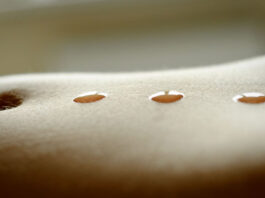Women’s overall well-being begins with a healthy vagina. All women can take charge of their vaginal health through many lifestyle choices. What are the lifestyle choices that affect your vagina? How can you improve your vaginal health? Read on!
Firstly, you should understand your vagina
Understanding your vagina
How do you know your vagina is healthy when you don’t connect with it? Get to know your vagina and understand the language it speaks to you. The vagina is an essential part of your body as a woman, and you must understand how it works.
Your vagina is a hollow organ inside your body that is 10cm long and located in the pelvis between the bladder and the rectum.
It is a specially made hole that enables you to experience sexual pleasure and is also a vital part of the internal reproductive system, which makes pregnancy and childbirth possible. Your vagina is different from your vulva. Read that again!
Your vagina is best described as a self-cleaning oven because it needs no help in cleaning itself.
It is made up of microbiomes, which consist of a variety of bacteria and fungi that keep it healthy and free from infections. As long as there is balance in the vaginal microbiomes, Your vagina will be healthy.
The lifestyle choices that you make are one of the most important factors that can cause an imbalance in microbiomes in your vagina.
Most women do not see these factors as a threat to their vagina health. Well, they are a big threat, and you should avoid them at all costs if you want to experience the feeling of peace down there.
5 lifestyle choices that affect your vaginal health
1. Stress
Most women overwork their limits, and this results in stress, which is not a good friend to the body and, most importantly, your vagina.
It disrupts the balance of bacteria in the vagina, making it easier for harmful bacteria to thrive and thus making your vagina susceptible to infections such as bacterial vaginosis.
If stress is unavoidable, there are stress reduction techniques that can help prevent your vagina from infections, and this will be discussed further in the article.
2. Diet and Nutrition
Whatever you take into your body has an impact on your vagina’s health. Hence, diet plays an important role in maintaining balance in the vagina.
Consuming high-sugar diets can kill off the good bacteria in the vagina and thereby cause an imbalance, which leads to vaginal infections like bacterial vaginosis and yeast infection.
3. Personal hygiene
Cleaning your vagina with fragrant soaps does not tag you as “hygienic,” and neither does it help your vagina.
Do you have any idea what you do to your vagina when you clean it with all sorts of soap? You are killing the good bacteria that keep it safe and free from infections.
Hygienic practices that help to maintain your vaginal health will be discussed further.
4. Sexual health
If you enjoy having unprotected sex, you are probably aware of the risks associated with it, like STDs. But another important thing you should be aware of is how unprotected sex can affect your vaginal microbiomes and make them susceptible to infections like yeast infection, bacterial vaginosis, and urinary tract infections( UTIs).
Unprotected sex can introduce new pathogens, change your vaginal pH, and encourage the growth of bad bacteria resulting in discomfort.
Discomfort down there isn’t a good outcome to experience after enjoying pleasurable sex.
How can you avoid discomfort down there while enjoying unprotected sex? Keep reading!
5. Seeking guidance from professionals
Many people have the mindset that only infertile couples visit the gynecologist, which is utterly wrong!
Suppose you feel your vagina is communicating to you in a way that is not comfortable with you. Do you sit and wait for miracles to happen? Do you need to visit a gynecologist every time your vagina changes?Find out below.
What does a healthy vaginal discharge look like?
Suppose your vaginal discharge is clear, milky white, and varies in consistency throughout your menstrual cycle with a faint or musky odor. In that case, it is considered normal vaginal discharge. It helps to maintain moisture and healthy bacteria while washing out problem bacteria.
It is important that you know that a healthy vagina secretes a small amount of discharge that might not be noticeable to you at times.
However, you should be concerned when your vaginal discharge is dark yellow, brown, green, or grey and has a foul or fishy odor, and is in the form of cottage cheese. This is an abnormal vaginal discharge that may be caused by infections such as yeast infections, bacteria vaginosis, or sexually transmitted infections(STIs).
You can also experience abnormal vaginal discharge when there is a flunctuation in your hormones or as a reaction to certain medications and other health issues.
When should I visit a gynecologist?
“I have never had sex before, so why should I visit a gynecologist?” Dear strong women, a gynecologist is there to help you solve any problem concerning your reproductive health, whether you are into sex or not yet.
You should visit a gynecologist when you experience any of these:
1. Itching
Occasional itching of the vagina is normal, as some women experience itching prior to their menstruation. But persistent itching that causes you discomfort is abnormal, and you should find your way to the gynecologist if you experience this.
2. Burning sensation
If you feel a burning sensation while urinating, it’s not a good sign. Visit your gynecologist.
3. Strong, foul-smelling vaginal discharge
Observe your vaginal discharge, and If you notice there is a strong fishy odor, it’s your cue to visit your doctor to avoid further discomfort.
Abnormal vaginal discharge is nothing to be shy of. Open up to your gynecologist. They have seen worse cases, and they are happy to help you.
4. Vaginal dryness
Your vaginal should always be partially wet and not dry. When you notice any unusual dryness down there, seek a gynecologist fast and save your vagina.
5. Painful sex
When the sex that is meant to be pleasurable for you becomes painful and not because it’s your first time, then your vagina needs your help. Help it by visiting a professional gynecologist.
6. Lumps
These are usually not good signs in a woman’s body. When you feel a lump that you do not understand down there, see your gynecologist to prevent further complications.
How to maintain a healthy vagina
The only way to prevent your vagina from infections is to keep it healthy.
Follow these tips to maintain a healthy and infection-free vagina:
–Avoid douching
As discussed earlier, your vagina is a self-cleaning oven and does not need your help in cleaning itself. But if you feel the need to clean down there, use warm water and mild soap to clean the outer bits ( the vulva).
– Practice safe sex by using condoms to avoid contracting infections.
-Drink plenty of water, as this will ensure that your vagina is well lubricated and help prevent urinary tract infections.
– Consume fermented foods that contain probiotics, like yogurt and kombucha.
– Include plenty of fruits and vegetables in your diet.
– Engage in stress reduction techniques such as meditation, yoga, deep breathing exercises, and mindfulness practices.
-Wear breathable cotton underwear.
– Use mild, unscented soap for showering and bathing to avoid irritation and discomfort.
– Use unscented tampons for menstrual bleeding, and don’t leave tampons in for longer than 8 hours.
– Wipe from front to back after using the toilet.
Take care of your vagina. Your vaginal health is your wealth!




